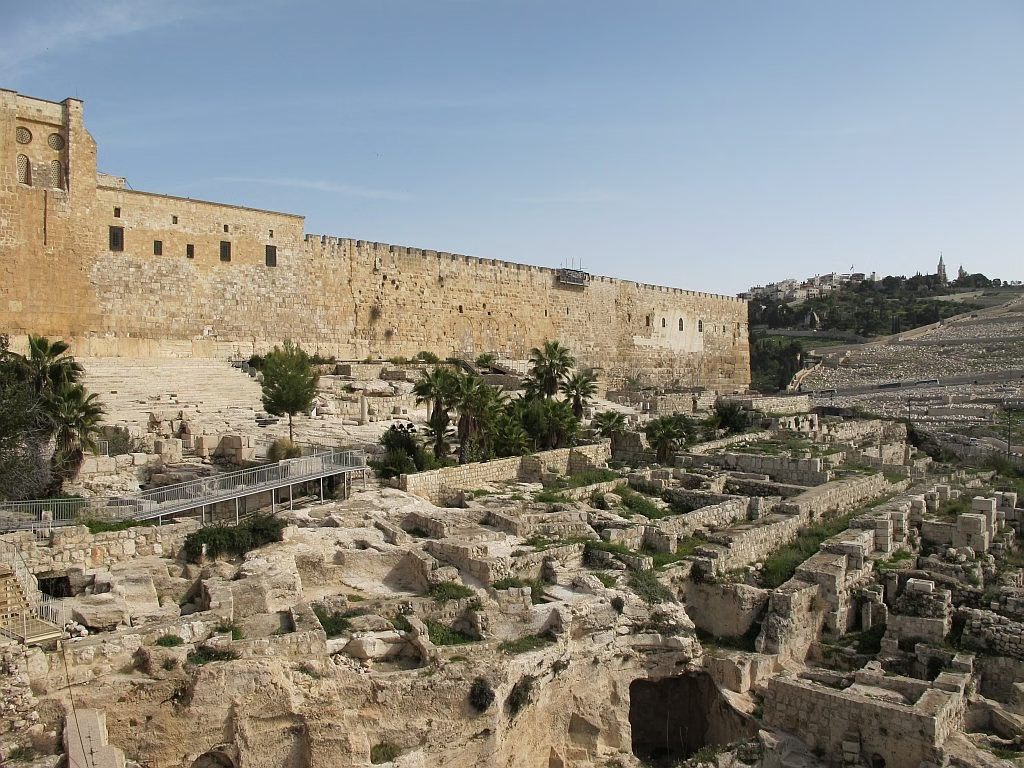Biblical Jerusalem|| For millennia, Jerusalem has stood as a symbol of faith, history, and divine promise. Known as the City of David, the site of Solomon’s Temple, and a key setting in the life of Jesus Christ, Jerusalem is central to Judaism, Christianity, and Islam. But what if the Jerusalem we revere today is not the same described in the Bible?
A growing number of researchers are challenging the long-held belief that modern Jerusalem is the exact location of the ancient biblical city. This intriguing perspective, though controversial, encourages a fresh examination of scripture, geography, and archaeology. Could it be possible that biblical Jerusalem was located somewhere else entirely?
Jerusalem in Biblical History
Jerusalem is more than just a city; it’s the heartbeat of countless biblical narratives. It’s where King David established his throne, Solomon built his magnificent temple, and Jesus walked toward His crucifixion. Known as “Zion” in scripture, it represents God’s covenant with His people—a place of spiritual significance and historical wonder.
Modern Jerusalem, situated in Israel, has been widely recognized as this sacred city for centuries. However, alternative theories suggest that the ancient Jerusalem described in scripture might have been elsewhere.
Challenging the Narrative
Those who question the traditional location of biblical Jerusalem present several arguments:
- Geographical Discrepancies
The Bible describes Jerusalem as surrounded by abundant water sources, fertile valleys, and distinctive topographical features. Critics argue that modern Jerusalem’s arid environment doesn’t fully align with these descriptions. - Lack of Archaeological Evidence
Despite decades of excavations, some researchers believe the archaeological finds in modern Jerusalem don’t fully reflect the grandeur of Solomon’s Temple or the opulence of King David’s city as described in scripture. - Ancient Text References
Non-biblical records from ancient civilizations sometimes reference “Jerusalem” in contexts that seem geographically inconsistent with its present-day location.
Where Could Biblical Jerusalem Be?
Various theories propose alternate locations for biblical Jerusalem:
- Northern Israel: Some researchers point to regions closer to Galilee, arguing that these areas better match the biblical descriptions of flowing rivers and fertile lands.
- Southern Israel: Others suggest ruins in the Negev Desert could hold clues, citing evidence of ancient settlements that align with some biblical accounts of David’s early reign.
- Neighbouring Regions: A few theories even venture beyond Israel’s borders, proposing that biblical Jerusalem might have been in areas now part of neighbouring countries.
Counterarguments to Alternative Claims
Mainstream historians and theologians remain sceptical of these theories, citing several reasons:
- Historical Continuity
The identification of modern Jerusalem as the biblical city has been consistent across Jewish, Christian, and Islamic traditions for thousands of years. - Significant Archaeological Finds
Remnants of the First and Second Temples, among other discoveries, strongly affirm the historical credibility of present-day Jerusalem as the biblical site. - Cultural and Spiritual Legacy
Modern Jerusalem has been continuously inhabited and venerated as a sacred city, making it unlikely that such a profound historical error could persist.
Why This Debate Matters
This discussion is about more than geography—it touches on faith, heritage, and history. For many believers, the location of biblical Jerusalem is foundational to their spiritual journey. For archaeologists and historians, it challenges the reliability of traditional narratives.
If biblical Jerusalem were proven to be elsewhere, the implications could reshape our understanding of ancient history and deepen the mystery surrounding one of humanity’s most sacred cities.
A Timeless Mystery
Whether or not these alternative theories hold up, one thing is certain: Jerusalem—wherever it may have stood—remains a symbol of resilience, faith, and divine connection. Modern Jerusalem will always be a cornerstone of spiritual and cultural identity, but the ongoing exploration into its biblical roots inspires us to keep seeking truth.
The idea that there could be more to Jerusalem’s story invites believers, historians, and seekers alike to dive deeper into scripture, history, and the unending quest for understanding.



